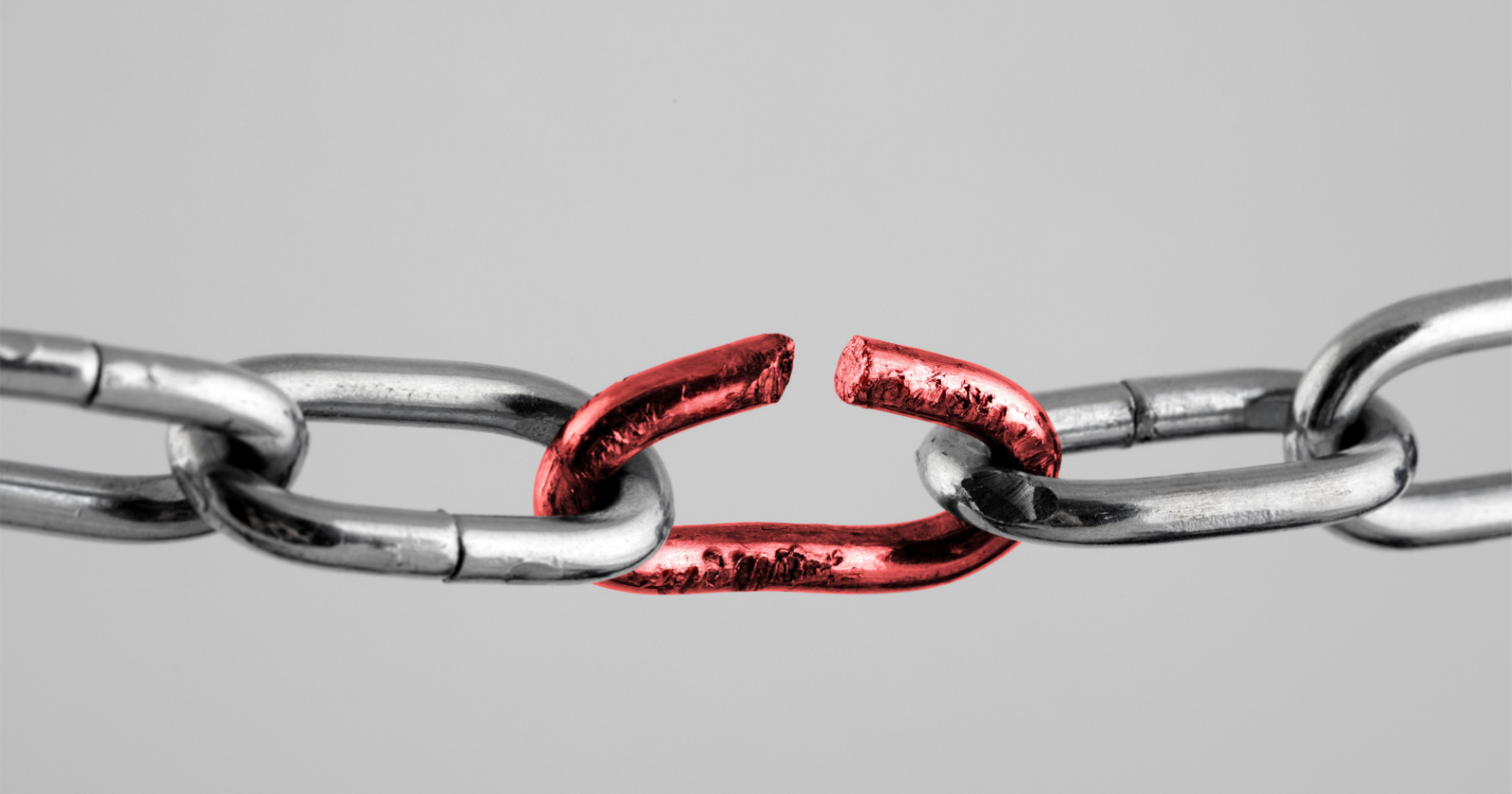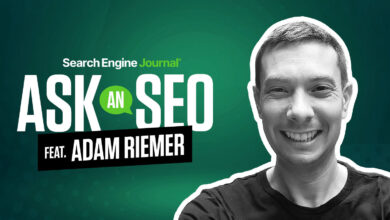Bad & Toxic Backlinks You Should Avoid

Link building is a complex art form with various tactics and approaches.
Despite being a well-established process in SEO, there is still much debate about what constitutes a “bad” or “good” link building strategy, including the balance between effectiveness and risk, and which tactics Google can detect or penalize a website for.
This article will help you identify what to steer clear of when engaging in link building or evaluating the strategies of a new service provider.
I’m not here to settle any disagreements, and if you’re an SEO professional who enjoys experimenting, you may find this article slightly conservative.
As is common in the industry, there is often a discrepancy between what Google recommends and what actually works, and there is value in those who test boundaries and try new things.
However, I am taking a cautious approach that closely follows Google’s guidelines for two main reasons:
- This article is aimed at readers seeking reliable and sustainable strategies. I do not recommend using experimental or high-risk tactics in link building if you are not well-versed in them and aware of the associated risks.
- You should view the guidelines as a statement of intent, rather than absolute or current truth. Even if a link building tactic that goes against Google’s guidelines yields results now, it is likely that Google intends to address it in the future.
Types Of Unnatural Links
An unnatural link is any link created to manipulate search engines or that violates Google’s spam policies.
Below are some common types of unnatural links.
Buying Or Selling Links
There is nothing inherently wrong with paying for a link or exchanging a product or service for a link, as long as the nature of the relationship is disclosed and the links are not for SEO purposes.
Buying, exchanging, or trading links for SEO is where the issue lies. SEO links should be based solely on the content of the page.
If people choose to link to your content because they find it valuable, then you should reap SEO benefits.
When money or value exchanges are introduced, it disrupts the intended purpose of SEO links and opens the door to manipulation. In such cases, Google requires that the links be marked as rel=nofollow or rel=sponsored to ensure they do not pass SEO value. As long as this practice is followed by you or the linking parties, there should be no issues.
Here is an example of implementing nofollow and sponsored attributes:
<a href="https://example.com" rel="nofollow">read our guide</a>
<a href="https://example.com" rel="sponsored">read our guide</a>
There are several ways in which buying or selling links can violate Google’s spam policies:
- Text advertisements with links that pass SEO signals because they are not marked as “nofollow” or “sponsored.”
- Paying for articles that contain links passing SEO signals.
Another form of buying links is paying someone to create them for you. As long as this service provider does not engage in unethical tactics and does not provide you with links on their own domains, this practice is acceptable.
It’s important to note that the definitions of “buying” and “selling” are not limited to monetary exchanges. It includes any exchange where something is given in return for a link, such as a product.
As Matt Cutts explained in 2014, Google closely follows the FTC on what constitutes a “material connection” between a link provider and recipient:
- If a party receives enough value to potentially influence their behavior, a material connection must be disclosed.
- A pen or t-shirt may not influence behavior (unless given for the purpose of reviewing/linking).
- A direct payment for a link, a gift card, or a high-value product may influence behavior and incentivize a link.
- A loaned item has different implications than a given item.
- Consider the target audience: if items are given away for reasons other than acquiring links (e.g., as part of a conference attendance gift), disclosure may be necessary, but marking links as sponsored may not be mandatory if people choose to discuss them.
- Consider whether a link relationship would be surprising: it is understandable for a movie reviewer to receive a free movie screening. However, it would be less expected for a tech reporter to keep a laptop they are reporting on without disclosure.
Link Exchange Agreements
Link exchanges are akin to buying links as they involve a value exchange.
Organic mutual linking is not problematic, as it is reasonable for certain websites to link back and forth.
However, be cautious of any formal agreements. Engaging in a “link for link” arrangement is not advisable, as it can be easily detected if done frequently.
Any time a link is given or received for reasons other than its value and relevance, it becomes noticeable – perhaps more so than you realize.
A bit of reciprocal linking occasionally is not a major issue. When faced with multiple website options to reference, it is logical for individuals to choose those they already know or have relationships with.
This is generally acceptable.
The issue arises when specific agreements are made: You link to me, and I’ll link to you. This can lead to artificial inflation of rankings through private blog networks (PBNs) where one entity controls multiple websites to manipulate authority and SEO value. This violates Google’s guidelines and can result in penalties. Similarly, unnatural links from forums, blog comments, and automated link syndication are considered spammy tactics. It’s important to avoid lazy link building strategies and focus on creating valuable, high-quality content to avoid the risk of manual actions from Google. When it comes to Google penalties for link building, it may seem like a targeted action, but in reality, it’s not always the case. Google employs both automated systems and manual actions to combat toxic and spammy link building practices. Generally, you don’t need to worry about being penalized unless you are intentionally engaging in these tactics on a large scale.
Specific penalties can be incurred for unnatural links, whether they are pointing to your site or coming from your site. If your website hosts unnatural links that point to other sites, you may face a manual action from Google. This signals to Google that you are contributing to the issue they are trying to address.
Having a significant number of unnatural links originating from your website could lead Google to lose trust in your site and impose a penalty. This penalty will be communicated to you through Google Search Console and can be reversed by addressing the issues and requesting a reevaluation.
On the other hand, receiving a penalty for unnatural links pointing to your site is less common. However, if Google suspects that you are trying to manipulate your website’s ranking, you may still face a manual penalty. It’s crucial to ensure that your site does not host unnatural links, as Google takes a strict stance against such practices.
To identify shady links, look out for signs such as links from new or young sites on blogging domains, numerous unnatural links from unrelated forums, and links from irrelevant websites and directories. These are indicators of potentially harmful link building tactics that could result in penalties from Google.
In summary, maintaining a clean and natural link profile is essential to avoid penalties and ensure good standing with Google’s ranking algorithms. By following best practices and being vigilant about the quality of your backlinks, you can protect your website from potential penalties.
**FAQs:**
1. **What are some signs of shady links?**
Some signs of shady links include links from new or irrelevant sites, unnatural links from forums, and links from unrelated websites and directories.
2. **How can I avoid penalties for unnatural links?**
To avoid penalties for unnatural links, ensure that your website does not host any shady or manipulative links. Regularly audit your backlink profile and remove any suspicious links.
3. **Can penalties for unnatural links be reversed?**
Yes, penalties for unnatural links can be reversed by fixing the issues and submitting a request for reevaluation to Google.
4. **Why is it important to have a clean link profile?**
A clean link profile is essential for maintaining a good reputation with search engines and avoiding penalties that can harm your website’s ranking.
5. **What should I do if I suspect my website has unnatural links?**
If you suspect that your website has unnatural links, conduct a thorough audit of your backlink profile and take necessary steps to remove or disavow any harmful links. The document needs to be rewritten.




